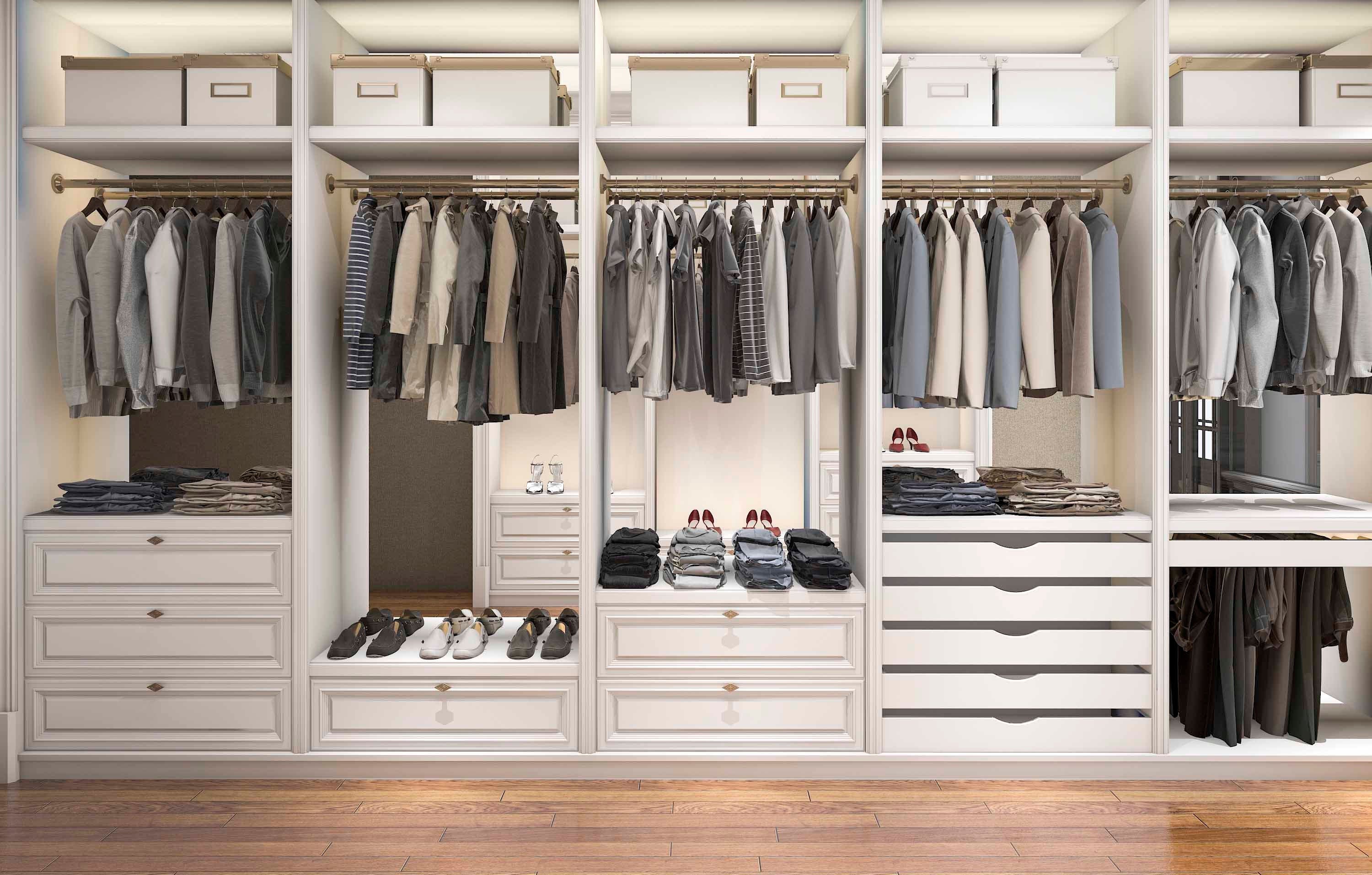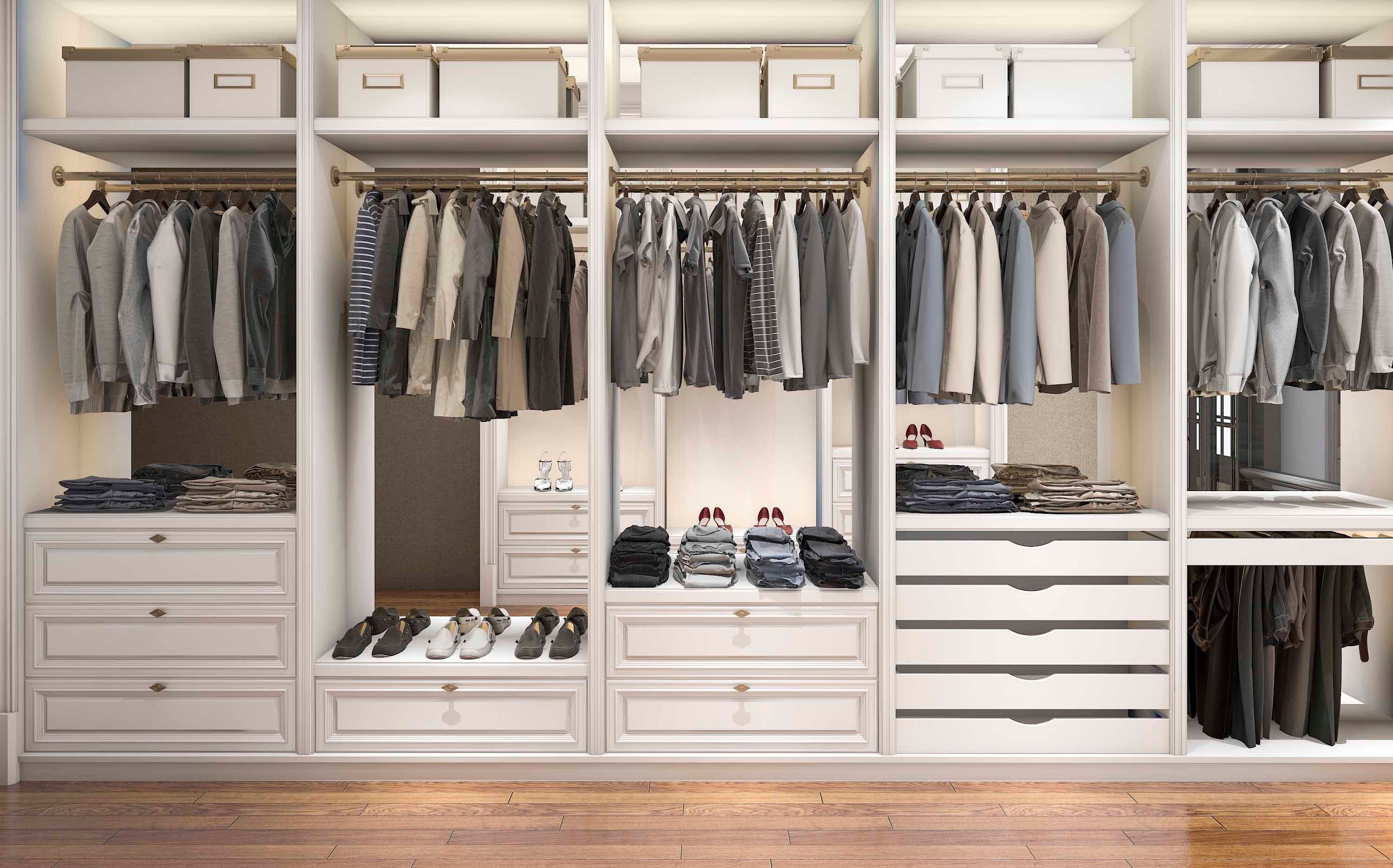New year, less clutter


With a new year on the horizon, it’s a perfect time to finally tackle the clutter you’ve been trying to avoid. If your home is tidy and organized, you will likely feel calmer and happier yourself – and you’ll be able to find your keys a lot faster.
Decluttering can be extremely overwhelming – especially if you’ve been procrastinating about it for a while. So first, just make the decision to deal with it, and then set a day to start decluttering – even just a little bit. Remember, you don’t have to do it all in one day.
Overall strategy
Author, speaker, coach, and productivity expert Clare Kumar has a four-step P.L.A.N. for getting organized.
- Prioritize: “Identify what’s important to you – what you want to do and how you want the space to feel. This drives everything that either should or should not be there,” she says.
- Liberate: In other words, “let go of the things that no longer serve those priorities,” Kumar explains. “This can be emotionally challenging, so make sure you hold on tightly to your vision and complete [it] when you feel strong.”
- Arrange: “Place items so you can expend the right amount of effort to retrieve them.”
- Nurture: Cultivate happy habits to help your organized space stay that way, she says. “That means knowing how often to put things away or limiting purchases.”
How to combat being overwhelmed
“Decluttering is what gave me back my sanity after becoming completely overwhelmed as a new mom with the responsibilities of working outside the home, running a household and raising children,” says Lauren Tingley, creator of Simply-Well-Balanced.com.
“One challenge that most people face when starting to declutter is feeling completely overwhelmed and being afraid to even get started,” she says. So here are her tips to make decluttering much more manageable.
- Set the timer: “When you first start, don’t jump into a day-long project. Instead, make steady [progess] by decluttering for 10 minutes at a time.”
- Start with the easy stuff: “Don’t start with your closet or your garage. Instead, start by going through areas in your house that tend to collect clutter that is actually garbage – drawers, kids’ craft area, your desk area etc. Grab a garbage bag and tackle these small areas for 10 minutes at a time. You will be amazed at how many items are cluttering your home that are actually garbage,” Tingley says.
- Set up a system: When you are ready to move beyond just getting the junk out of the house, have a plan for what you are going to do with everything, Tingley says. “Set up a donation bin in a spare room or in the garage [and] set a date to donate the items each month.”
Decluttering tips and tricks
- No floating objects: “Do you have one or 10 objects that just seem to float from place to place with no designated spot to call their own? Take a moment and think through where these things should go,” says Jessica Samson, spokesperson for The Maids. “Common ‘floaters’ are the broom, backpacks, lunch boxes, car keys, and incoming mail.” One way to fix this is to install hooks to give “floaters” a home.
- Get it on camera: “Sometimes we just can’t see the clutter on our shelves, tables and counters because we’ve just gotten so used to it,” Samson says. “Get a different perspective by taking a picture of the room and look at it critically. If you wouldn’t post the pic on Facebook because it looks so messy, then you know you need to declutter your life.”
- Eradicate expired items: “Remove old or expired foodstuffs from your kitchen’s refrigerator and pantry including canned goods, spices, dry goods, boxed goods, and condiments,” says Rashelle Isip, a professional organizer and blogger at TheOrderExpert.com. “You can also extend your reach to the bathroom and bedroom by removing any expired makeup, beauty, or personal care items.”
- Switch to digital bills and statements: “Keep postal mail and related paperwork to a minimum by switching to digital bills and statements,” Isip says. “You’ll have less incoming paper to deal with in your home.”
- Use a planner or productivity app: With a planner or similar app, you can consolidate notes and other random bits of information like addresses, appointments and phone numbers, Isip says.
